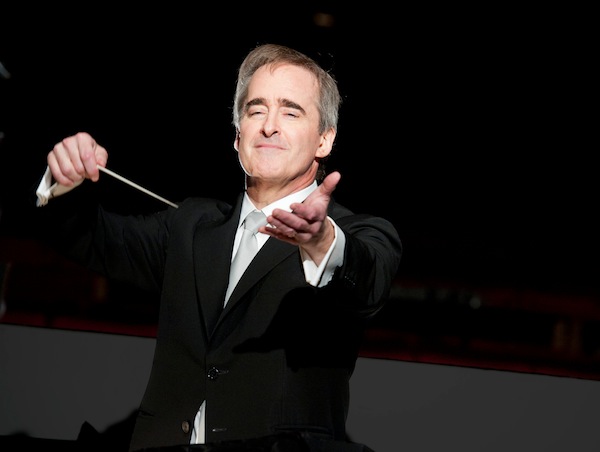Mezzo’s affecting vocalism lifts CSO’s Mahler

Disappointment that Bernard Haitink had cancelled this week’s performances with the Chicago Symphony Orchestra was mitigated by the fact that James Conlon was available to take the helm for one of Gustav Mahler’s deepest and greatest works.
As music director of the Ravinia Festival from 2005-2015, Conlon demonstrated his Mahler bona fides in a complete cycle of the Austrian composer’s symphonies with the resident Chicago Symphony Orchestra, a project that was a highlight of his North Shore tenure.
So it was fortuitous that the scheduled program was largely devoted to Das Lied von der Erde, even though Thursday night’s performance of Mahler’s epic vocal symphony proved more successful in parts than as a whole.
Mahler was ahead of his time in many ways, not least his international perspective on art and poetry. In Das Lied — his unnumbered ninth symphony — the Austrian composer set six texts of translated Chinese poetry for two soloists and orchestra. The stanzas focus on various aspects of life’s beauty and pleasures while musing on the mystery and melancholy transience of earthly life.
Before the performance it was announced that one of the soloists, Stephen Gould, was suffering from a severe cold and the audience was asked for its indulgence.
As it turned out, the burly tenor soldiered on, singing solidly enough, though top notes were thin and his vocalism lacked Heldentenor projection. More problematic than any indisposition was the generalized nature of Gould’s singing. “Von der Jugend” showed some of the requisite hearty cheer of youth, but “Das Trinklied vom Jammer der Erde” was stolid, and his plainspun “Der Trunkene in Fruhling” was that of an abstemious teetotaler.
Making her CSO debut, Sarah Connolly seemed overparted at times as well, her voice sounding decidedly lightweight in its current state for this assignment.
Yet the English mezzo-soprano made up for a lack of volume with refined artistry. In “Der Einsame in Herbst” her restrained, poignant singing touchingly conveyed the longing for oblivion of the lonely protagonist. In “Von der Schonheit” her sensitive attention to the text put across the varied responses to life’s passing beauties.
Connolly rose impressively to the challenge of the final setting, “Der Abschied.” In this epic farewell to earthly joys and sadness, Connolly’s rapt singing was mesmerizing–refined of tone, affecting in its intimate expression. She even managed to quell the bronchial outbursts and reduce the noisy Orchestra Hall audience to attentive silence.
The performance was aided enormously by the glorious playing of the orchestra, which was rich and vibrant under Conlon’s idiomatic direction. The conductor’s bold textures consistently brought out Mahler’s dark coloring, not least the strange unsettling interludes between the stanzas of “Der Abschied.” The playing was up to the highest of local standards with atmospheric solo work from oboist Alex Klein and, especially, flutist Stefan Ragnar Hoskuldsson. Guest trumpet Mark Hughes from the Houston Symphony made an impact with his clarion, bright-toned contributions as well.
The evening began with Schubert’s “Unfinished” symphony, which served as an effective brooding prelude.
Conlon took a more Classical approach than one often hears, with lean textures and flowing tempos. Yet the taut, incisive playing ensured there was no lack of dramatic cut or intensity at the climaxes. Too bad a ringing cell phone spoiled the hushed coda of the first movement.
The program will be repeated 8 p.m. Friday and Saturday. cso.org; 312-294-3000.
Posted in Performances





Posted Apr 02, 2017 at 2:07 am by Yuan
I went to the performance on Saturday, which was terrific. Richard Cox actually replaced Stephen Gould as tenor, and powered through the two drinking songs.